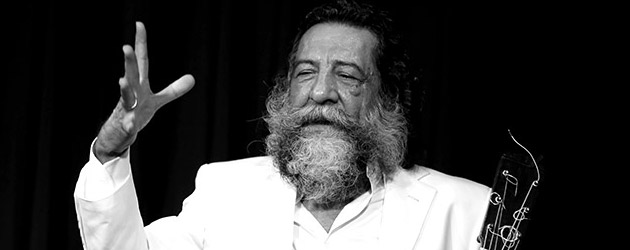Estela Zatania
The legendary Triana artist has passed away, and the world of flamenco is in mourning.
» Cómo temblaba mi corazón, mare,
cómo temblaba mi corazón
solito, prima, por la calle»
(From «La Plazuela y el Tardón» by Manuel Molina)
The one-man Greek chorus of flamenco
Forty years ago, in the summer of '75, I turned on the radio one morning and was surprised by a fresh intriguing sound. It was flamenco, but different somehow. Young and optimistic, with a slight bittersweet flavor. This wasn't the primal scream of classic flamenco, but something more user-friendly, without being at all superficial. «Nuevo Día» was the name of that bulería song that would define the generation; even the title was well-chosen, because the piece marked the beginning of a social phenomenon called «Lole and Manuel», and a musical movement that would open doors, and which has only accelerated since then.
Today, May 19th, 2015, flamenco followers have had to assimilate the premature passing of Manuel Molina (Ceuta, 1948-Seville, 2015), driving force of that ground-breaking duo that was so important in the career of this man, so unique in the most literal sense of the word. At 67 years of age, we have lost the one-man Greek chorus of flamenco, a role he carried out with artists such as Manuela Carrasco and Farruquito among others. The famous stance of Manuel, seated, arms outstretched, gazing heavenward while clutching a guitar that seemed to continue sounding to accompany his verses, is an indelible image that identifies this one-of-a-kind artist.
Before forming the legendary duo with his wife Lole, there were other musical experiments, most notably Manuel was a member of the group Smash, famous for its contemporary arrangement of garrotín. But decades later, long after Lole and Manuel, he would find his true vocation and identity in a capacity he himself invented; a sort of composer-poet with guitar who half sang, half murmured original poetry to a laidback rhythm of bulerías. Once again he showed us that flamenco need not be aggressive and tense, and that strong emotions can be communicated through sensitivity and sweetness.
You had to be young and have lived through it. Or perhaps not. Perhaps Manuel Molina's greatest achievement was having been able to connect with his own generation, and those that would come afterwards. No one will take his place, no one aspires to do so, it's simply not possible. We have lost an irreplaceable individual. Who is not envisioning him right now «up there» getting comfortable in his seat, guitar in hand to flamenco up the atmosphere? Ole Manuel…ole and ole forever.
